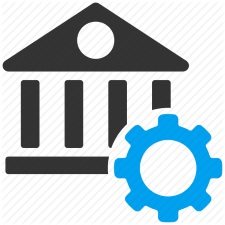How do prevailing interest rates affect price of bonds
Introduction
The market value of the bonds has an inverse relationship with current interest rates. That is, if interest rates rise, price of bonds tend to fall and vice versa. When you buy a US savings bond or a certificate of deposit (CD), your goal is to invest your money where it earns interest. Investors buy negotiable bonds for the same reason. However, there is an important difference. The price of a negotiable bond changes as it is exchanged in the bond market. The most important factor that affects the price of a bonds is the prevailing interest rate.
What are bonds?
Bonds are debt securities issued by companies and governments to borrow money. A bond pays a fixed amount of annual interest called the coupon rate until maturity, when the borrowed money must be returned. When bonds are issued, the coupon rate is normally adjusted close to the prevailing interest rate. Over time, the prevailing interest rates vary and may be considerably above or below the coupon rate.
Table of Contents
How to Interest rate affect Price and demand of Bond?
Due to the fact that investors buy bonds for the returns they offer, the greater the performance or the attractive interest rate, more attractive the bond is for investment. However, if there is an increase in prevailing interest rates, the bond is less desirable. The demand for the bond also decreases when investors flee elsewhere for better investment, and the market value of the bond falls. However, the decline in prices makes it more attractive as an investor can now buy the bond at a lower price, but get the same amount of interest than before. When the prices are low enough, the yield of bond rises that makes it a more attractive option for investment.
Interest rates vs Maturity of bonds
When a bond is nearer to its maturity date, the interest rate will have less influence on the price of bond in the money market. The price of bonds gets closer and closer to its face value. The reason is simple: a bondholder will soon receive the nominal value when the institution that issued the bond has to pay the principal. If you own a bond with these features and is being sold with a discount from face value, you get no benefit from selling it, because you get more if you wait for a short period of time. In addition, investors will not buy a bond that is sold for more than its face value when it is near maturity, because there is no enough time for the interest income that will offset the loss of charges, and the nominal value of bond is less than the price of premium.
Factors influencing bond prices apart from Interest rates:
Although interest rates are the main determinant of price of bonds, investors also consider credit risk. The risk of default is negligible for Treasury bonds and very low for bonds of state and local government. Top-rated corporate bonds are also low risk investments, but so-called junk bonds carry a significant risk because the issuer may not repay the borrowed funds represented by bonds. Corporate bonds and municipal bonds are rated by services such as Moody and Fitch ratings based on their credit risk. If the rating of a bond is low, the price of the bonds falls as investors generally do not pay much for it.



